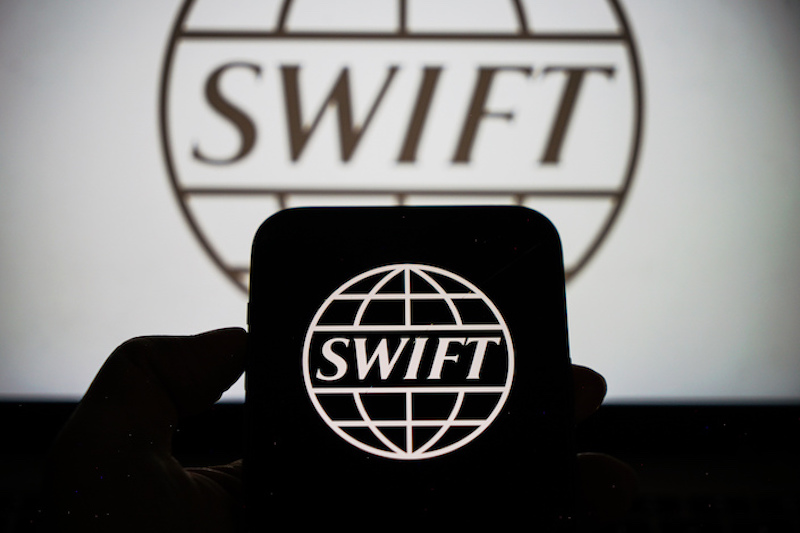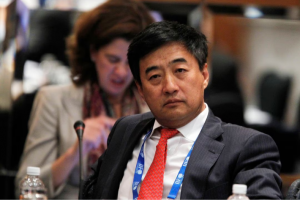China’s homegrown cross-border payments mechanism – or any new alternative – won’t be strong enough to enable Russia to sidestep being cut off from the world’s biggest interbank payment messaging system, analysts say.
That’s despite reports that suggest SWIFT‘s ban on Russian banks could accelerate the expansion of Beijing’s own system, CIPS, which has gained more prominence amid US threats since 2019 to decouple its economy from China’s.
China’s state-run Xinhua News Agency cited an economist on Monday saying that SWIFT will lose its credibility and influence and gradually decline in importance if it’s used as a sanctions tool.
Also on AF: Brazil’s Central Bank Quadruples its Yuan Reserves
Many countries, including Russia and Iran, have developed their own equivalents of SWIFT, it added, saying that the rising status of currencies from emerging markets will also help ensure the decline of SWIFT.
But China’s Caixin reported on Tuesday that most experts say China doesn’t have the capacity to fully replace SWIFT used for cross-border payments.
A report by CoinDesk noted that China’s CIPS – Cross-Border Interbank Payment System – has just 75 members, compared with more than 10,000 in SWIFT.
As well as 75 direct participants, CIPS says it has 1,205 indirect participants. Of those 934 are in Asia, including 541 in China. There are 159 in Europe, including the Industrial and Commercial Bank of China’s Russia branch.
There are also 43 participants in Africa , 29 in North America, 23 in Oceania and 17 in South America.
READ MORE: China Media Say Dollar, SWIFT in Decline on Russia Sanctions
That view was backed up by Mark Williams, chief Asia economist at Capital Economics, who said claims CIPS could provide a practical alternative for Russian banks banned from the established SWIFT set-up were misguided.
“In practice, because CIPS is limited to payments in yuan, it is only currently used for transactions with China,” said Williams. “Banks elsewhere are unlikely to turn to CIPS as a SWIFT workaround while Russia is an international pariah.”
More importantly, he added, unlike SWIFT, CIPS is a payments processor as well as a messaging service. That means it is also subject to Western sanctions on transactions involving Russian banks.
Williams added: “While the CIPS payments system doesn’t touch the US banking system, payments through it that were deemed to be intended to circumvent US sanctions could trigger sanctions for those involved. That effectively limits the use of CIPS to bilateral transactions between Russia and China.”
Iranian leaders have though claimed they may soon be able to circumvent western sanctions through CIPS or a proposed Russian-Chinese joint venture version.
Tehran Clearing System
In 2019, SWIFT cut off access for nearly all Iranian banks. In response, Tehran connected its SEPAM domestic financial clearing system to Russia’s System for Transfer of Financial Messages (SPFS).
That theoretically enabled the two countries to conduct cross-border transactions, according to Steven Terner, an independent geopolitical consultant, in an article for the Washington Institute for Near East Policy, a US think tank.
“If true, this workaround could reduce Tehran’s incentive to make concessions when reviving the 2015 nuclear deal,” he wrote.
However, it is unclear how successful the workaround would be and size remains an issue. SWIFT pushes through 50 million messages a day compared to 15,000 through CIPS. SWIFT messages enable $5 trillion to move worldwide each day.
In December 2021, following talks between Vladimir Putin and Xi Jinping, the Kremlin announced plans to develop a joint financial messaging and clearing system with China.
“The goal of this system would be to recruit numerous international banks – enough participants to deter the threat of Western economic sanctions,” said Terner.
“Yet neither country is working determinedly to develop such a joint system—rather, they have taken limited steps toward creating financial messaging systems that are used almost exclusively by their own domestic banks.”
- George Russell
READ MORE:
Chinese Payment Stocks Soar Amid SWIFT Curbs Against Russia
Asia Markets Brace For Turmoil As Russia Faces SWIFT Cut-Off
Chinese banks urged to switch away from SWIFT as US sanctions loom
























